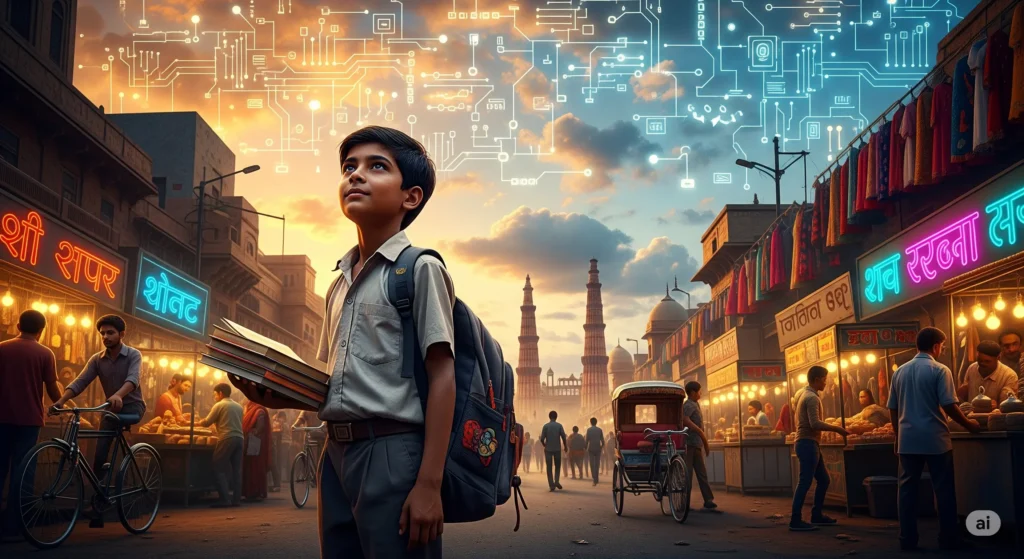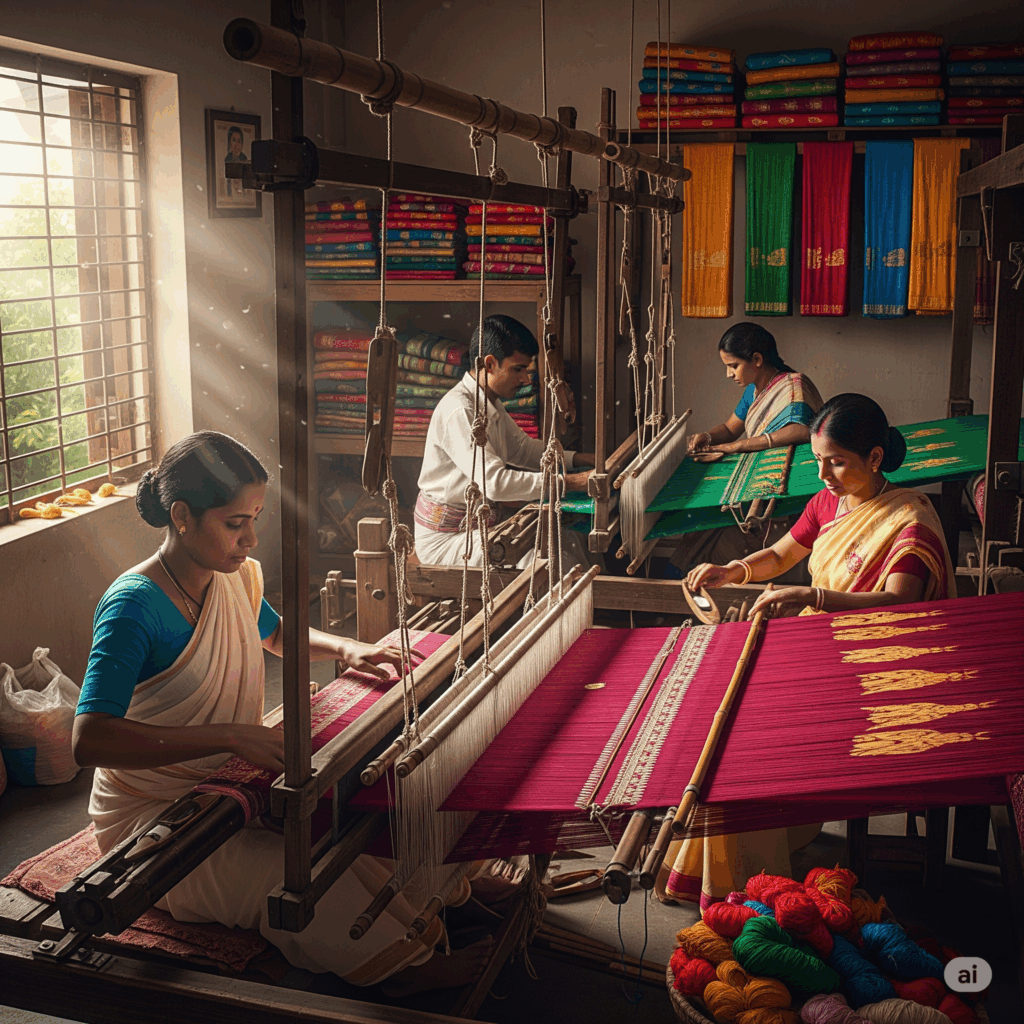Kalamkari is one of the most celebrated and intricate textile arts of India, known for its detailed hand-painted or block-printed designs, often telling stories from mythology and folklore. The word Kalamkari comes from two Persian words: “Kalam” (pen) and “Kari” (craft/work) – literally meaning “drawing with a pen.”
Here’s a detailed look at Kalamkari Textile Art:
🌿 Origins & History
-
Roots: Dates back over 3,000 years, flourishing during the Mughal and Golconda Sultanate periods.
-
Centers: Primarily practiced in Andhra Pradesh (Machilipatnam style) and Telangana (Srikalahasti style).
-
Patronage: Gained royal patronage under the Mughals, who used Kalamkari for palace hangings, canopies, and garments.
-
🖌️ Styles of Kalamkari
There are two major traditions:
-
Srikalahasti Style (Freehand drawing with pen/brush)
-
Done by hand using a kalam (bamboo or date-palm pen).
-
Strongly narrative: depicts Hindu epics like Ramayana, Mahabharata, and Puranas.
-
Popular in temple hangings, wall scrolls, and ritual textiles.
-
-
Machilipatnam Style (Block printing + hand detailing)
-
Uses wooden hand-carved blocks dipped in natural dyes.
-
Designs are more floral, Persian, and geometric due to Islamic influence.
-
Favored for sarees, dupattas, and dress materials.
-
🎨 Process & Technique
The Kalamkari process is labor-intensive, often involving 23 steps:
-
Fabric treatment with cow dung, buffalo milk, and myrobalan for dye absorption.
-
Outlines drawn with a kalam dipped in natural dyes (charcoal + water).
-
Natural dyeing using vegetable dyes (indigo, madder, turmeric, pomegranate peels, iron filings).
-
Wax resist or mordanting to fix colors.
-
Repeated washing & sun-drying to bring out brilliance.
-
-
🌸 Designs & Motifs
-
Mythological figures: Krishna, Rama, Durga, Vishnu, Ganesha.
-
Nature-inspired motifs: Peacocks, lotuses, creepers, elephants.
-
Persian-inspired patterns: Paisleys, floral vines, geometric borders.
-
-
🪡 Uses in Modern Fashion & Decor
-
Sarees, dupattas, kurtas, stoles, lehengas.
-
Home decor: Wall hangings, cushion covers, bedspreads.
-
Contemporary fashion: Fusion wear, Indo-western dresses, and sustainable clothing.
-
-
🌍 Significance
-
A UNESCO-recognized heritage art form.
-
Represents the fusion of Hindu temple traditions and Persian artistry.
-
Sustainable, since it relies on natural dyes and handmade processes.
-
- ✨ Kalamkari isn’t just textile—it’s storytelling on fabric, combining myth, nature, and tradition into wearable art
-
-
- FEW COLLECTIONS OF KALAMKARI FABRIC ART..
- FEW KALAMKARI SAREE COLLECTIONS..








FEW KALAMKARI DRESSES COLLECTION:






To Explore More Interesting Collections Contact Bellow:
INFINITY ELEGANCE
By MOMO BANIK
Insta ID : @moum09
Mail ID : creativemind1209@gmail.com
CALL & WHATSAPP : +919748522348 / +918282902348



